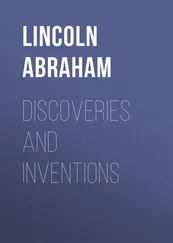Johann Beckmann - A History of Inventions, Discoveries, and Origins, Volume II (of 2)
Здесь есть возможность читать онлайн «Johann Beckmann - A History of Inventions, Discoveries, and Origins, Volume II (of 2)» — ознакомительный отрывок электронной книги совершенно бесплатно, а после прочтения отрывка купить полную версию. В некоторых случаях можно слушать аудио, скачать через торрент в формате fb2 и присутствует краткое содержание. Жанр: foreign_antique, foreign_prose, на английском языке. Описание произведения, (предисловие) а так же отзывы посетителей доступны на портале библиотеки ЛибКат.
- Название:A History of Inventions, Discoveries, and Origins, Volume II (of 2)
- Автор:
- Жанр:
- Год:неизвестен
- ISBN:нет данных
- Рейтинг книги:4 / 5. Голосов: 1
-
Избранное:Добавить в избранное
- Отзывы:
-
Ваша оценка:
- 80
- 1
- 2
- 3
- 4
- 5
A History of Inventions, Discoveries, and Origins, Volume II (of 2): краткое содержание, описание и аннотация
Предлагаем к чтению аннотацию, описание, краткое содержание или предисловие (зависит от того, что написал сам автор книги «A History of Inventions, Discoveries, and Origins, Volume II (of 2)»). Если вы не нашли необходимую информацию о книге — напишите в комментариях, мы постараемся отыскать её.
A History of Inventions, Discoveries, and Origins, Volume II (of 2) — читать онлайн ознакомительный отрывок
Ниже представлен текст книги, разбитый по страницам. Система сохранения места последней прочитанной страницы, позволяет с удобством читать онлайн бесплатно книгу «A History of Inventions, Discoveries, and Origins, Volume II (of 2)», без необходимости каждый раз заново искать на чём Вы остановились. Поставьте закладку, и сможете в любой момент перейти на страницу, на которой закончили чтение.
Интервал:
Закладка:
LENDING AND PAWNBROKING
It appears singular to us at present that it should have been once considered unlawful to receive interest for lent money; but this circumstance will excite no wonder when the reason of it is fully explained. The different occupations by which one can maintain a family without robbery and without war, were at early periods neither so numerous nor so productive as in modern times; those who borrowed money required it only for immediate use, to relieve their necessities or to procure the conveniences of life; and those who advanced it to such indigent persons did so either through benevolence or friendship. The case now is widely different. With the assistance of borrowed money people enter into business, and carry on trades, from which by their abilities, diligence, or good fortune, so much profit arises that they soon acquire more than is requisite for their daily support; and under these circumstances the lender may undoubtedly receive for the beneficial use of his money a certain remuneration, especially as he himself might have employed it to advantage; and as by lending it he runs the risk of losing either the whole or a part of his capital, or at least of not receiving it again so soon as he may have occasion for it.
Lending on interest, therefore, must have become more usual in proportion as trade, manufactures, and the arts were extended; or as the art of acquiring money by money became more common: but it long continued to be detested, because the ancient abhorrence against it was by an improper construction of the Mosaic law converted into a religious prejudice 2 2 J. D. Michaelis, in Syntagma Commentationum, ii. p. 9; and his Mosaisches Recht. iii. p. 86.
, which, like many other prejudices more pernicious, was strengthened and confirmed by severe papal laws. The people, however, who often devise means to render the faults of their legislators less hurtful, concealed this practice by various inventions, so that neither the borrower nor lender could be punished, nor the giving and receiving of interest be prevented. As it was of more benefit than prejudice to trade, the impolicy of the prohibition became always more apparent; it was known that the new-invented usurious arts under which it was privately followed would occasion greater evils than those which had been apprehended from lending on interest publicly; it was perceived also that the Jews, who were not affected by papal maledictions, foreigners, and a few natives who had neither religion nor conscience, and whom the church wished least of all to favour, were those principally enriched by it.
In no place was this inconvenience more felt than at the Romish court, even at a time when it boasted of divine infallibility; and nowhere was more care employed to remove it. A plan, therefore, was at length devised, by which the evil, as was supposed, would be banished. A capital was collected from which money was to be lent to the poor for a certain period on pledges without interest. This idea was indeed not new; for such establishments had long before been formed and supported by humane princes. The emperor Augustus, we are told, converted into a fund the surplus of the money which arose to the State from the confiscated property of criminals, and lent sums from it, without interest, to those who could pledge effects equal to double the amount 3 3 Sueton. Vita Augusti, cap. 41.
. Tiberius also advanced a large capital, from which those were supplied with money for three years, who could give security on lands equivalent to twice the value 4 4 Taciti Annal. vi. 17. – Sueton. Vita Tiberii, cap. 48. – Dio Cassius, lviii. 21.
. Alexander Severus reduced the interest of money by lending it at a low rate, and advancing sums to the poor without interest to purchase lands, and agreeing to receive payment from the produce of them 5 5 Ælius Lamprid. Vita Alex. Severi, cap. 21.
.
These examples of the ancients were followed in modern Italy. In order to collect money, the popes conferred upon those who would contribute towards that object a great many fictitious advantages, which at any rate cost them nothing. By bulls and holy water they dispensed indulgences and eternal salvation; they permitted burthensome vows to be converted into donations to lending-houses; and authorised the rich who advanced them considerable sums to legitimate such of their children as were not born in wedlock. As an establishment of this kind required a great many servants, they endeavoured to procure these also on the same conditions; and they offered, besides the above-mentioned benefits, a great many others not worth notice, to those who would engage to discharge gratis the business of their new undertaking; but in cases of necessity they were to receive a moderate salary from the funds. This money was lent without interest for a certain time to the poor only, provided they could deposit proper pledges of sufficient value.
It was, however, soon observed that an establishment of this kind could neither be of extensive use nor of long duration. In order to prevent the secret lending of money, by the usurious arts which had begun to be practised, it was necessary that it should advance sums not only to those who were poor in the strictest sense of the word, but to those also who, to secure themselves from poverty, wished to undertake and carry on useful employments, and who for that purpose had need of capitals. However powerful the attractions might be, which, on account of the religious folly that then prevailed, induced people to make large contributions, they gradually lost their force, and the latter were lessened in proportion, especially as a spirit of reformation began soon after to break out in Germany, and to spread more and more into other countries. Even if a lending-house should not be exhausted by the maintenance of its servants, and various accidents that could not be guarded against, it was still necessary, at any rate, to borrow as much money at interest as might be sufficient to support the establishment. As it was impossible that it could relieve all the poor, the only method to be pursued was to prevent their increase, by encouraging trade, and by supplying those with money who wanted only a little to enable them to gain more, and who were in a condition and willing to pay a moderate interest. The pontiffs, therefore, at length resolved to allow the lending-houses to receive interest, not for the whole capitals which they lent, but only for a part, merely that they might raise as much money as might be sufficient to defray their expenses; and they now, for the first time, adopted the long-established maxim, that those who enjoy the benefits should assist to bear the burthen – a maxim which very clearly proves the legality of interest. When this opening was once made, one step more only was necessary to place the lending-houses on that judicious footing on which they would in all probability have been put by the inventor himself, had he not been under the influence of prejudice. In order that they might have sufficient stock in hand, it was thought proper to give to those who should advance them money a moderate interest, which they prudently concealed by blending it with the unavoidable expenses of the establishment, to which it indeed belonged, and which their debtors, by the practice a little before introduced, were obliged to make good. The lending-houses, therefore, gave and received interest. But that the odious name might be avoided, whatever interest was received, was said to be pro indemnitate ; and this is the expression made use of in the papal bull.
All this, it must be confessed, was devised with much ingenuity: but persons of acuteness still discovered the concealed interest; and a violent contest soon arose respecting the legality of lending-houses, in which the greatest divines and jurists of the age took a part; and by which the old question, whether one might do anything wicked, or establish interest, in order to effect good, was again revived and examined. Fortunately for the pontifical court, the folly of mankind was still so great that a bull was sufficient to suppress, or at least to silence, the spirit of inquiry. The pope declared the holy mountains of piety, “sacri monti de pietà,” to be legal; and threatened those with his vengeance who dared to entertain any further doubts on the subject. All the cities now hastened to establish lending-houses; and their example was at length followed in other countries. Such, in a general view, is the history of these establishments: I shall now confirm it by the necessary proofs.
Читать дальшеИнтервал:
Закладка:
Похожие книги на «A History of Inventions, Discoveries, and Origins, Volume II (of 2)»
Представляем Вашему вниманию похожие книги на «A History of Inventions, Discoveries, and Origins, Volume II (of 2)» списком для выбора. Мы отобрали схожую по названию и смыслу литературу в надежде предоставить читателям больше вариантов отыскать новые, интересные, ещё непрочитанные произведения.
Обсуждение, отзывы о книге «A History of Inventions, Discoveries, and Origins, Volume II (of 2)» и просто собственные мнения читателей. Оставьте ваши комментарии, напишите, что Вы думаете о произведении, его смысле или главных героях. Укажите что конкретно понравилось, а что нет, и почему Вы так считаете.












